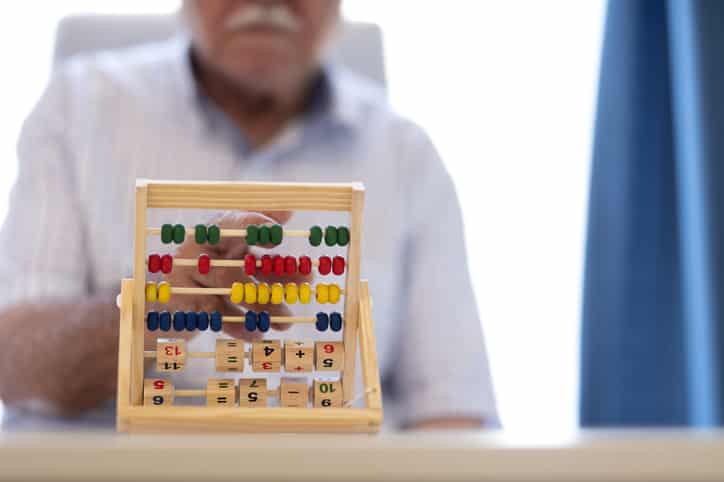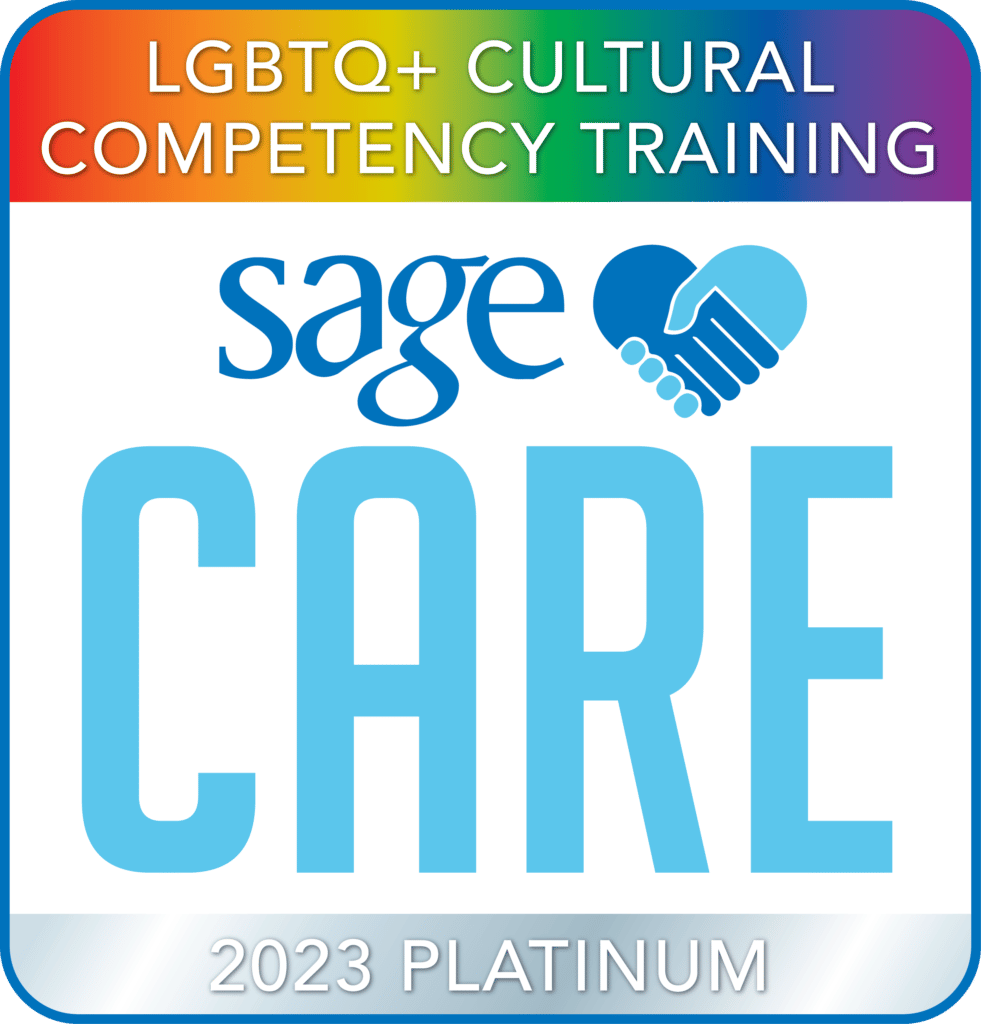Understanding Terminology Related to Dementia

When you’re becoming familiar with dementia or Alzheimer’s disease, certain terms pop up that may be confusing at first. It’s important to become aware of common terminology if your loved one has been recently diagnosed with dementia or Alzheimer’s disease. In this article, our memory care specialists in South Jersey will go over dementia terminology like risk factors, links, and causes, as well as what they actually mean for your loved one.
What is dementia?
It’s important to know that dementia is not a specific disease. Instead, it’s the name given to a category of health conditions that cause a decline in mental ability. Alzheimer’s is one of the most common causes of dementia, but there are other types including vascular dementia, Lewy body dementia, and frontotemporal dementia.
Causes of dementia
Determining the cause of any disease is very difficult. For example, alcohol consumption can cause liver disease, but not all drinkers will get liver disease. For dementia conditions, it’s still not completely clear what causes diseases like Alzheimer’s, but some things make people more likely than others to get these diseases. That’s why it’s more useful to focus on risk factors rather than causes.
Risk factors for dementia
These are factors in both our everyday lives and our genetic makeup that increase the likelihood of dementia. Risk factors are determined by researchers who look for links and common areas between individuals suffering from this condition. The more risk factors you have, the higher the chance is of being diagnosed with dementia. Common risk factors include a family history of dementia, poor diet, lack of exercise, advanced age, smoking and alcohol use, presence of plasma homocysteine, and even head trauma.
Factors linked to or associated with dementia
These are usually weaker risk factors that are still being researched, are often disputed, and are not necessarily accurate. They can still be helpful to follow as the science becomes more rigorous, however, especially if you are looking to reduce your risk factors. Just remember that it’s more helpful to focus on proven risk factors rather than factors that are linked to a disease.
ADLs
When suffering from dementia conditions, the focus for caregivers is on ADLs – Activities of Daily Living. This includes assistance with bathing, dressing, grooming, making meals, and eating. It can also cover medication management and any areas where forgetfulness interferes with normal daily routines. If you are looking for a caregiver or assisted living community, ADLs will be discussed in detail to help ensure that your loved one is getting all the right care they need, while still supporting their level of independence.
Stages of dementia
Like other medical conditions, dementia progresses through different stages. As there is no cure for this condition, patients and their loved ones need to understand these stages so that they can prepare for dementia progression. This will also help caregivers and assisted living communities to manage care more effectively and scale up as dementia moves into the more advanced stages.
For example, an early-stage resident may be physically fit and simply need help with keeping track of medications, keeping appointments, remembering familiar places or people, scheduling their day, and managing transportation. An advanced or late-stage resident would likely need assistance with eating and swallowing daily grooming and personal care, and more medical care as they are more vulnerable to infections.
Professional memory care
Memory care is a multidisciplinary healthcare practice that focuses on providing quality of life care to people with dementia. It can involve several different teams and specialists, including clinical psychologists, occupational therapists, nursing, supervisory caregivers, and therapists trained to work with people who have memory disorders. The aim is to create a safe, structured environment that helps to stimulate the senses and memory, keeping people with dementia engaged on a day-to-day basis. Professional memory care is designed to help people more easily navigate their lives at every stage of this condition.
Leading dementia care and memory care options in Cape May County
If you are looking for professionals to help you care for your loved one, either on a temporary or permanent basis, UMC at The Shores’ Tapestries memory care team is here to help.
To find out more about what we do, please visit our website, call our memory care specialists in South Jersey, and have an online consultation. It’s no obligation, of course, and you’ll quickly see how we can fit into your caregiving team to provide your loved ones with the fulfilling life they deserve, whether it’s temporary respite or full-time memory care in Cape May County.
Visit us online at: https://umcommunities.org/theshores/





